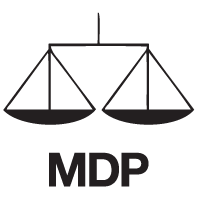In 2008, the Maldives’ first democratic Constitution was enacted which for the first time in the country’s history established the separation of powers. This led to the Maldives’ first democratic Presidential elections held in 2008 followed by elections for the Parliament (2009) and local councils (2011). These elections were judged free and fair.
With the new Constitution, independent institutions with a mandate to safeguarding fundamental human rights were established.
Despite efforts to reform, the only branch of the state that remained largely unchanged was the judiciary. Opposition parties associated with the former authoritarian leadership used their majority in the Parliament to vote down any effort to reform the judiciary. Most of the sitting judges were handpicked by the former President Gayyoom prior to the 2008 Constitution.
Under article 157 of the Constitution, the Judicial Service Commission is responsible for the appointment, promotion and transfer of judges other than the Chief Justice and the Supreme Court bench; and to investigate complaints about the Judiciary, and to take disciplinary action against judges, including recommendations for dismissal.
Article 285 of the Constitution states that all judges serving on 7 August 2008 were to remain in office for a maximum period of two years. Article 149 of the Constitution states that JSC must appoint judges as provided by law, inferring the existence of an enacted law for that purpose. The JSC was required to determine by 7 August 2010 whether the serving judges met the criteria provided in article 149 of the Constitution according to a law relating to the Judges, passed by the Parliament.
However, before such a law could be passed, the JSC published an Evaluation Criteria for the judges. In the same month, President Nasheed sent a letter to the JSC raising public concerns over the low standards set out in the Evaluation Criteria, and requesting the JSC to review the Criteria. The President also raised concerns over a number of sitting judges who had been found guilty of misconduct, who had pending cases against them, or were under criminal investigation. However, disregarding the issues raised in the letter from the President, the JSC went ahead with an oath taking ceremony for all the serving judges on 6 and 7 August 2010, which was held behind closed doors while members of the public staged protests outside the court. With this oath taking ceremony, the JSC instated the judges as permanent.
By the deadline set in the Constitution, the Constitutional concerns over the re-instatement of the judges of the lower courts remain unresolved.
Furthermore, judges have in the past deliberately obstructed the smooth functioning of the first democratic government and the implementation of government polices and decisions. For instance, the judiciary acted in a partisan and unfair manner to block government initiatives such as the airport privatization. At the same time, judges have consistently ruled favourably towards wealthy politicians and businessmen linked to the former dictatorship.
It is of deep concerns that a number of Supreme Court decisions have undermined the Constitution, eroded the checks and balances of the State and prevented the proper functioning of judicial watchdog bodies such as the Judicial Services Commission.
International organisations including the UN Human Rights Committee, the International Commission of Jurists, the Commonwealth Ministerial Action Group have expressed their concerns over the independence of the Maldivian judiciary.
Most recently the UN Human Rights Committee recommended “radical changes” to Maldivian law to ensure compliance with the International Covenant on Civil and Political Rights (ICCPR). The committee said it is “deeply concerned about the state of the judiciary in the Maldives.” In the Committee’s meeting the State admitted that the judiciary’s “independence is seriously compromised.” The Committee further said the judiciary is desperately in need of more serious training, and higher standards of qualification.
Article 63 of the Judicature Act states: “A Magistrate Court shall be established in all inhabited islands with the exception of Male’ where there are the four superior courts created in accordance with Article 53(b) of this Act and in an island where 4 divisions of these four superior courts are established in accordance with Article 53 (c) of this Act.”
Disregarding the law the JSC established the Hulhumale’ Court and most recently, the Prosecutor General filed the criminal case against President Nasheed at the Hulhumale’ Magistrate Court. The Parliamentary Oversight Committee on Independent Institutions declared The Hulhumale’ Magistrate Court illegitimate. Following this, the Supreme Court (one of the judges is a chair of the JSC) overstepping its mandate and overruled the Parliament decision.
ENDS
